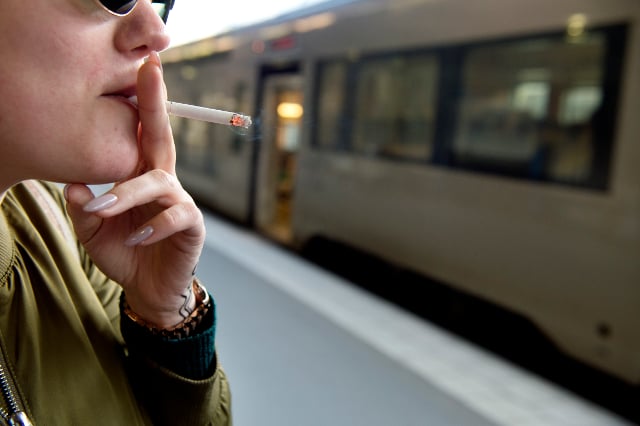Health Minister Annika Strandhäll announced the centre-left coalition government's new legislative proposal to stub out smoking in certain public places at a press conference at Stockholm Central Station on Friday.
“We need to de-normalize the use of tobacco in the public space,” Strandhäll told reporters.
“I think it is reasonable that you should not have to be exposed to tobacco smoke in these kinds of places, such as platforms. Ninety percent of the population do not smoke,” she said.
The government is expected to put a formal proposal to parliament in February, reports news agency TT.
Strandhäll said it would include a proposal to introduce rules stating that Sweden's moist powder tobacco 'snus' may only be sold in packs of at least 20 portions to discourage non-users from buying the product.
INTERVIEWS: Stockholmers react to proposed smoking ban

Health Minister Annika Strandhäll presenting the proposal on Friday. Photo: Sören Andersson/TT
The bid follows a lengthy government inquiry, released in 2016 but commissioned by the previous centre-right government in 2014, which suggested limiting the number of areas in which people are allowed to smoke.
A separate report from Sweden's Public Health Agency in 2014 pointed to evidence suggesting that passive smoking is responsible for up to ten cases of lung cancer in the country each year as well as around 400 cases of cardiovascular disease.
Repeated polls have indicated that most Swedes back the idea of an extended smoking ban, with young people especially in favour of the plan.
However critics argue that a more extensive ban on smoking is a step too far in a country which already prohibits lighting up inside a wide range of places including bars, restaurants and shopping centres.
The Local took to the streets of Stockholm on Friday to find out what people thought. Read their comments here.




 Please whitelist us to continue reading.
Please whitelist us to continue reading.